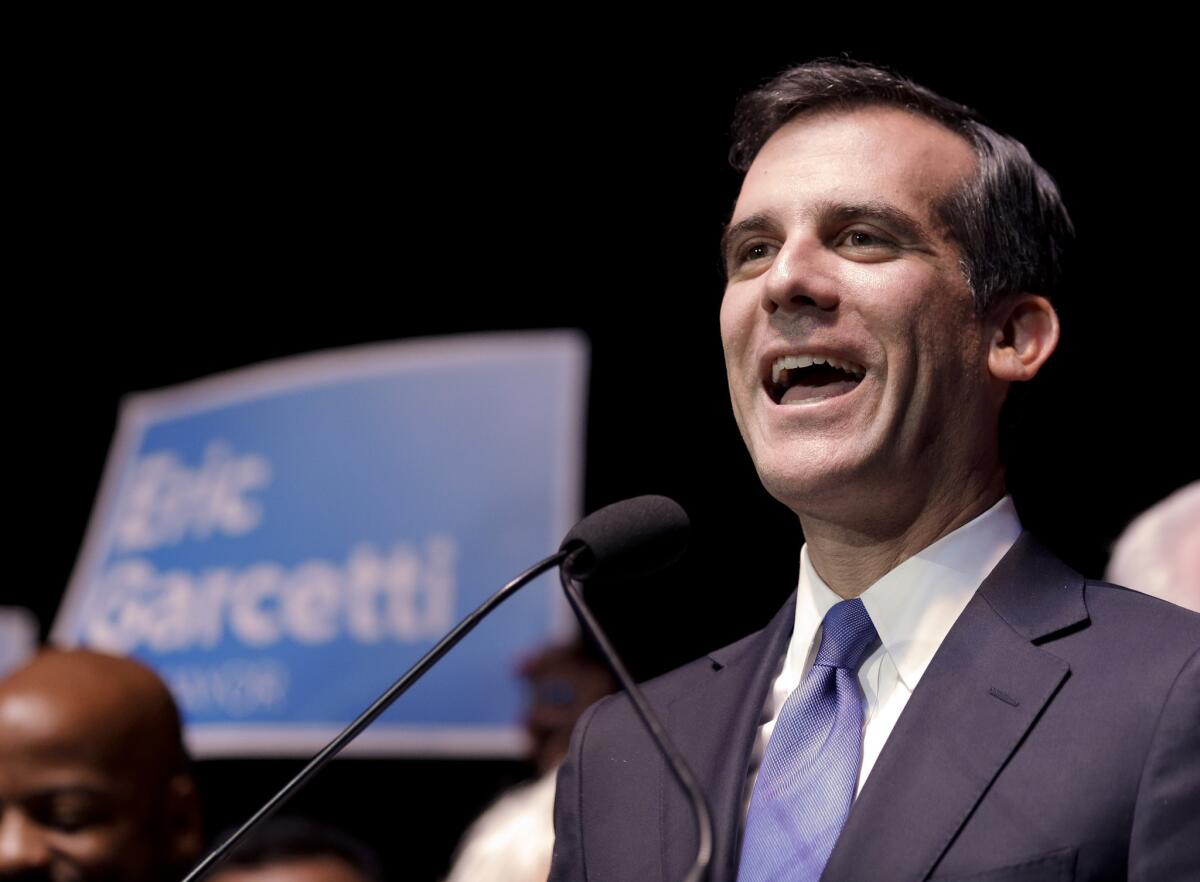How money twists L.A.’s elections

- Share via
Often, by the end of an election, the weaknesses of the existing campaign finance laws have become evident, and the need to update them has been made clear by the ways those weaknesses have been exploited. That is certainly the case with Los Angeles’ most recent city elections.
Some of the problems are not fixable locally. The explosive rise of independent expenditures, for instance, is constitutionally protected. The Supreme Court has held that the 1st Amendment protects the right of individuals, unions and corporations to spend unlimited sums on a political race, so long as the spending is not made directly to (or coordinated with) a candidate. Locally, the effects of that line of reasoning resulted in a historic first during this election cycle: Independent spending on behalf of mayoral candidate Wendy Greuel actually exceeded the amount she raised and spent herself.
If that problem is beyond the reach of local authorities, another pernicious issue is not. Los Angeles has a highly unusual campaign finance rule that prohibits candidates from carrying over money from the first round of an election to the runoff. It’s grounded in a sensible principle, but doesn’t work in practice and should be discarded.
The idea behind the prohibition is that the city’s elections are discrete and its campaign rules apply to each election separately. If, for instance, Eric Garcetti had received more than 50% of the vote in the first round of the mayoral race, there would have been no runoff. The first round is not a primary, it’s an election — and a runoff is held only if no candidate prevails in it. (In 1997, Richard Riordan won in the first round, as did Antonio Villaraigosa in 2009.)
The consequences of the prohibition are almost entirely negative. Candidates spend more than a year raising the money for the first round of an election and then, if forced into a runoff, have to immediately plunge back into fundraising. That leaves them less time to talk with voters. Moreover, it encourages candidates to spend their treasuries dry in the first round because they can’t use any money that’s left over, driving up the cost of running for office. Finally, it further empowers independent committees, which have deep pockets and can simply draw on them again in the second round, while candidates have to return to donors.
Often, winning candidates are reluctant to change rules that they have ridden to victory. In this case, however, neither winners nor losers cared much for this strange and unhelpful provision. The new mayor and council should abolish it.
More to Read
A cure for the common opinion
Get thought-provoking perspectives with our weekly newsletter.
You may occasionally receive promotional content from the Los Angeles Times.






